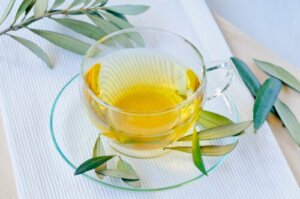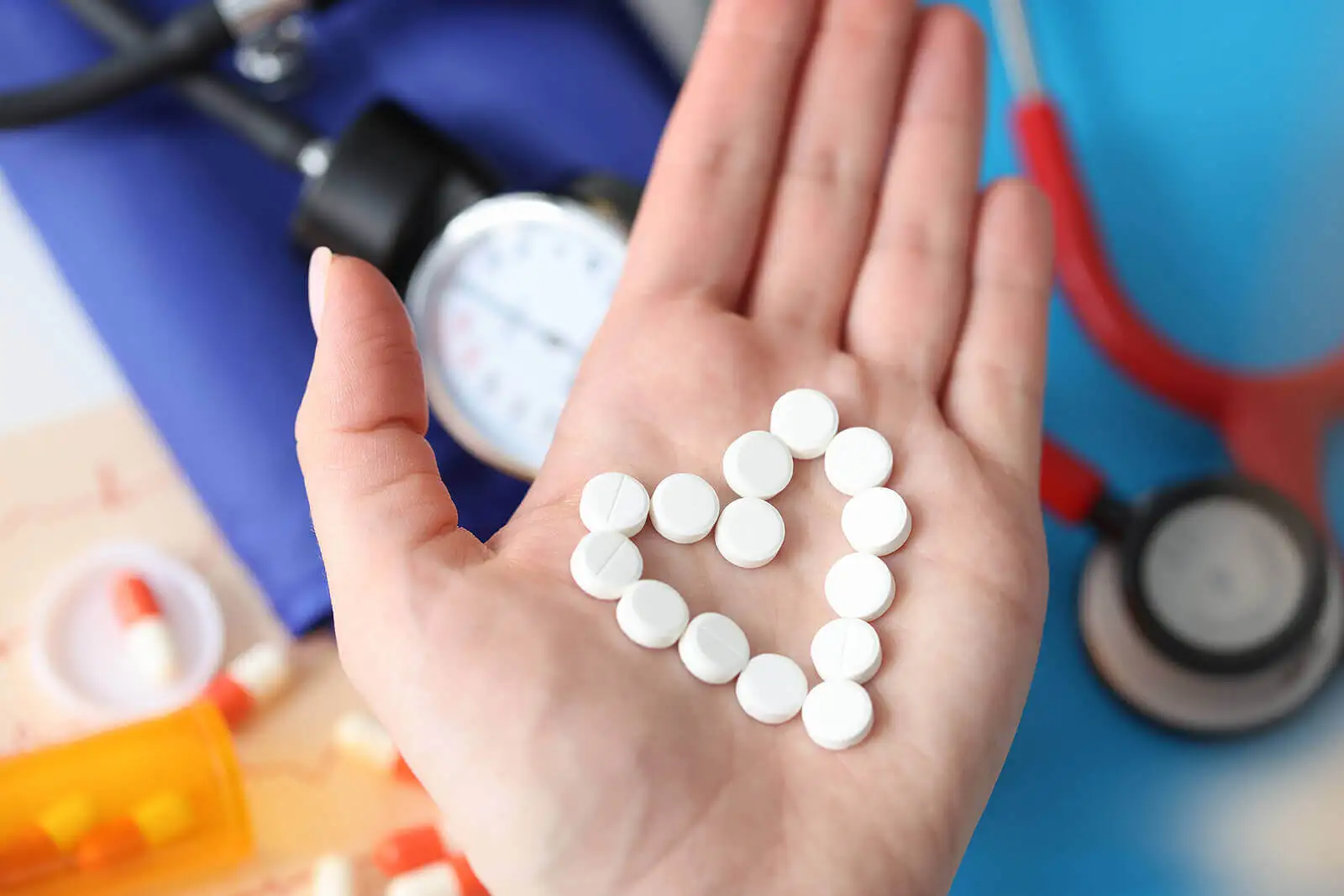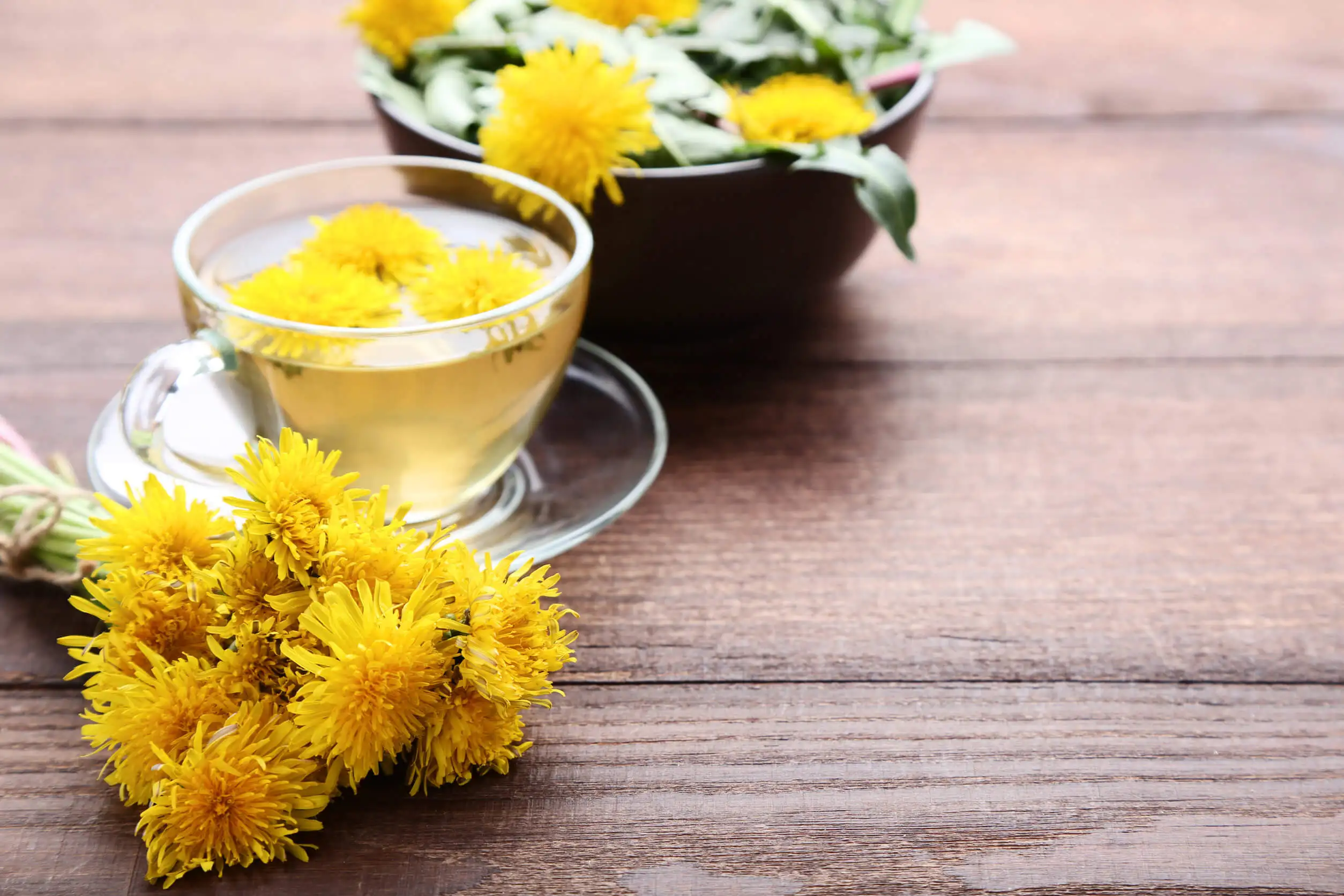4 Natural Infusions to Lower High Blood Pressure


Written and verified by the doctor Leonardo Biolatto
Treatments to lower high blood pressure or hypertension can be complemented with natural infusions. That is, it’s possible to add to your diet certain herbal preparations in the form of teas in order to contribute to the control of blood pressure levels.
This, of course, makes sense within the framework of carrying out and following medical prescriptions. Natural herbal teas for lowering high blood pressure don’t work on their own. They may reinforce the effect of drugs and lifestyle modifications that are usually prescribed to hypertensive patients.
Let’s see, then, what scientific arguments there are for recommending the following 4 natural infusions. Remember that this article is only a general guide and it’s always important to consult a health professional to clarify any doubts that may arise regarding their consumption.
The approach to high blood pressure
When a person is diagnosed with high blood pressure, the figures obtained from their blood pressure are classified according to their severity. An emergency with systolic blood pressure above 180 millimeters of mercury (mm Hg) is not the same as prehypertension.
The classification of arterial hypertension
As reported by the Mayo Clinic, a patient may be classified into one of the following groups:
- Prehypertensive: These are people with a systolic pressure of 120 to 129 mm Hg and a diastolic pressure below 80 mm Hg. It’s not yet considered a clear diagnosis of arterial hypertension, but the values are already above normal.
- First-degree hypertension: When the systolic pressure exceeds 130 mm Hg and doesn’t exceed 140 mm Hg, or the diastolic pressure is between 80 and 89 mm Hg, then grade 1 hypertension is already present.
- Grade 2 hypertension: These patients have repeated values of systolic blood pressure higher than 140 mm Hg and diastolic blood pressure higher than 90 mm Hg. It’s a frank pathological condition with a risk of organ damage in the medium term.
Finally, the special situation of a hypertensive crisis or emergency, when a person is admitted to the emergency room with values higher than 180/120 mm Hg, requires immediate therapeutic actions. Afterward, it’s very likely that the patient will fall into one of the categories we’ve already mentioned once the acute episode has ended.
Like this article? You may also like to read: 8 Tips to Correctly Take Your Blood Pressure at Home
The treatment of hypertension
Hypertensive patients will receive guidelines for lifestyle changes from their doctor. These are dietary measures and habits that allow a natural reduction in blood pressure values. Prehypertensive patients may not need to resort to pharmacological options if this first approach is successful.
Among the most recommended hygienic-dietary measures are the following:
- Perform moderate physical activity and avoid a sedentary lifestyle.
- Control your stress by regulating anxiety and relaxation techniques.
- Reduce the presence of salt in your regular diet.
- Quit smoking and eliminate alcohol consumption.
For grade 2 hypertensives, and those who can’t manage to control the figures with the above recommendations, pharmacology offers a variety of substances that can be prescribed. Whether to take a single compound or a combination of two or three depends on your doctor’s indications.
Among the drugs prescribed to treat arterial hypertension, we have the diuretic group, angiotensin-converting enzyme inhibitors (ACE inhibitors), beta-blockers, calcium channel blockers, and vasodilators. They can never be consumed without proper professional indication.

5 natural infusions to lower high blood pressure
Having made the previous considerations, we can talk about 4 natural infusions that present certain scientific evidence regarding their ability to reduce blood pressure. Again, we clarify that they’re not a first line of treatment. They complement the hygienic-dietary measures and drugs we’ve already mentioned.
1. Celery
Celery is one of the traditional vegetables in the treatment of arterial hypertension with natural infusions. It’s an ingredient that has phytochemicals and anti-inflammatory substances. It’s speculated to have a certain diuretic power as well, which would allow the discharge of excess fluids that would raise blood pressure in some patients.
A paper published in the Journal of Medicinal Food in 2013 corroborated the antihypertensive effects of celery seed in rats. At the same time, celery juice has been used to lower blood pressure in older adults. Its compounds are thought to inhibit calcium entry into vascular smooth muscle cells. By far, it’s one of the best natural infusions for lowering high blood pressure.
One option to prepare the infusion with celery would be to place 20 grams of celery in boiling water. After 15 minutes of letting it set, strain and drink.
2. Oregano
Oregano has long been studied for its potential in the pharmacological industry. It’s said that it could belong to the medicines that help control metabolic syndrome, obesity, diabetes, and arterial hypertension.
It’s also interesting to know that it could be a seasoning to reduce salt consumption. This is something that hypertensive patients may have difficulty with. If they’re used to the taste of salt, they may be reluctant to remove the ingredient from their tables. Oregano could spice up and generate a flavor that displaces the taste of sodium chloride.
At the same time, oregano and its molecular compounds have been shown to improve lipid profile. In controlled studies, it reduces bad or LDL cholesterol and increases the concentration of HDL or good cholesterol. This contributes to cardiovascular protection.
A natural infusion with oregano can be prepared to lower blood pressure by placing a teaspoon of the substance in boiling water. After 15 minutes of rest, it’s ready to drink.
We think you may also enjoy reading this article: How to Prepare Homemade Oregano Oil and its Benefits
3. Dandelion
The plant Taraxacum officinale W. is considered diuretic. That’s why dandelion is associated with the possibility of reducing high blood pressure, as it could eliminate fluids that could overload the cardiovascular system. Almost in the same way that some drugs would.
While dandelion is also considered useful in forcing the elimination of gallstones, it should be used with caution in patients who, in addition to being hypertensive, suffer from cholelithiasis. Its effect of stimulating the movements of the gallbladder could generate severe colic if there’s an obstruction to the path of bile. This is clarified in a publication in the journal Medicina Naturista.
The usual use in tea is prepared by adding a tablespoon of dandelion to boiling water. Then, continue boiling for 3 more minutes and strain to drink.

4. Olives
The use of the olive tree can be linked to better cardiovascular health in almost every way. We must remember that its derivatives are part of the Mediterranean diet.
This dietary pattern has been studied as a way to reduce cardiac events and risk factors that jeopardize the functioning of the heart and arteries. However, it’s not clear whether it’s in the combination of Mediterranean ingredients or in any particular one that the observed benefit lies.
Olive leaves are rich in polyphenols. These substances have a metabolic effect that’s not limited to high blood pressure. They’re also beneficial for the control of obesity and to help prevent metabolic syndrome.
An infusion with olive leaves is prepared with a tablespoon of dried leaves of the plant that are placed in boiling water. After letting the liquid steep, it’s strained and can be ingested. Many people enjoy it after meals.
5. Garlic
Several studies and investigations have supported the antihypertensive properties of garlic. Compared to placebo or no treatment at all, preparations that include garlic help control blood pressure levels. It’s thought to increase nitric oxide production, which results in smooth muscle relaxation and vasodilation.
The most important compound in garlic is allicin. Antioxidant and free radical scavenging properties have been attributed to this compound. To take better advantage of its properties, crush the garlic before adding it to the pot of boiling water. You can accompany it with lemon and ginger.
Try natural infusions to lower high blood pressure under medical supervision
As we’ve already made clear, the use of these natural infusions to lower high blood pressure should complement the medical approach prescribed by your doctor. They’re not miracle teas and won’t have an immediate effect on blood pressure.
It’s also a priority to inform your physician if these infusions are to be taken frequently. This way, the professional will be able to evaluate if there are interactions with the prescribed drugs or if another health condition would be a contraindication for their use. It’s not uncommon for this to occur, so a physician should monitor whether the infusions alter the metabolism or effectiveness of the drugs that have been prescribed.
All cited sources were thoroughly reviewed by our team to ensure their quality, reliability, currency, and validity. The bibliography of this article was considered reliable and of academic or scientific accuracy.
- Gasca, José María Gimeno. “Fisioterapia: Diente de León.” Medicina naturista 1 (2000): 20-23.
- Illes JD. Blood Pressure Change After Celery Juice Ingestion in a Hypertensive Elderly Male. J Chiropr Med. 2021 Jun;20(2):90-94.
- Moghadam MH, Imenshahidi M, Mohajeri SA. Antihypertensive effect of celery seed on rat blood pressure in chronic administration. J Med Food. 2013 Jun;16(6):558-63.
- Nicho Nicho, Alberto Gabriel, and Flor de María La Rosa Zavalla. “Leche fermentada con extracto de apio (Apium graveolens l.), y carambola (Averrhoa carambola l.) En la prevención de la hipertensión arterial del adulto mayor.” (2015).
- Ozdemir B, Ekbul A, Topal NB, Sarandöl E, Sağ S, Başer KH, Cordan J, Güllülü S, Tuncel E, Baran I, Aydinlar A. Effects of Origanum onites on endothelial function and serum biochemical markers in hyperlipidaemic patients. J Int Med Res. 2008 Nov-Dec;36(6):1326-34.
- Sohrabi F, Niazmand S, Mahmoudabady M, Niazmand MJ. The vasodilatory effect of Apium graveolens L (celery) seed in isolated rat aorta: The roles of endothelium, calcium and potassium channels. Avicenna J Phytomed. 2021 Jan-Feb;11(1):44-53.
- Sharifi-Rad M, Berkay Yılmaz Y, Antika G, Salehi B, Tumer TB, Kulandaisamy Venil C, Das G, Patra JK, Karazhan N, Akram M, Iqbal M, Imran M, Sen S, Acharya K, Dey A, Sharifi-Rad J. Phytochemical constituents, biological activities, and health-promoting effects of the genus Origanum. Phytother Res. 2021 Jan;35(1):95-121.
- Reinhart KM, Coleman CI, Teevan C, Vachhani P, White CM. Effects of garlic on blood pressure in patients with and without systolic hypertension: a meta-analysis. Ann Pharmacother. 2008 Dec;42(12):1766-71.
- Ried K, Frank OR, Stocks NP, Fakler P, Sullivan T. Effect of garlic on blood pressure: a systematic review and meta-analysis. BMC Cardiovasc Disord. 2008 Jun 16;8:13.
- Shaito A, Thuan DTB, Phu HT, Nguyen THD, Hasan H, Halabi S, Abdelhady S, Nasrallah GK, Eid AH, Pintus G. Herbal Medicine for Cardiovascular Diseases: Efficacy, Mechanisms, and Safety. Front Pharmacol. 2020 Apr 7;11:422.
- Widmer RJ, Flammer AJ, Lerman LO, Lerman A. The Mediterranean diet, its components, and cardiovascular disease. Am J Med. 2015 Mar;128(3):229-38.
- Saibandith B, Spencer JPE, Rowland IR, Commane DM. Olive Polyphenols and the Metabolic Syndrome. Molecules. 2017 Jun 29;22(7):1082.
- Xiong X, Li X, Zhang Y, Wang J. Chinese herbal medicine for resistant hypertension: a systematic review. BMJ Open. 2015 Jan 30;5(1):e005355.
This text is provided for informational purposes only and does not replace consultation with a professional. If in doubt, consult your specialist.








